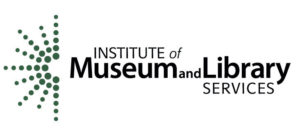


Libraries have served a critical role in providing free access to the web, especially to underserved populations. Librarians, policymakers, and other advocates often point to key challenges of accessibility, speed, and affordability, but too often missing from the conversation on digital inclusion is a host of critically important privacy considerations. The extent of government surveillance programs, differential treatment of online consumers (data profiling), and the need for protection of sensitive personal data have ramped up the urgency of addressing these matters.
In response to this need, the Digital Privacy & Data Literacy project is a training program that has engaged more than six hundred information and library professionals in the New York metropolitan area. The training materials and online learning modules on this site provide an overview of how information travels and is shared online, common risks encountered online by users, and the importance of digital privacy and data literacy.
Learning modules from the first workshops are available online. Our first module contains three parts: an Interactive History that canvasses library-relevant laws, policies, and technology developments, as well as the evolving role of the library in ensuring patron privacy; an overview of challenges that libraries face when protecting the flow of patron data to and through libraries; and, an outline of key factors influencing the nature of patron data flows to and through libraries. The second module, Mapping Data Flows, helps explain how your information moves around the internet when sending email or web browsing and highlights potential vulnerabilities within the library.
The Interactive History drew inspiration from many sources, including this Library Technology Timeline. The full references are housed on a publicly accessible Zotero.
Want to conduct a digital privacy training program for staff at your own library? Download slides, handouts, and facilitator’s guides for the two workshops we developed, “Fundamental Concepts for Libraries” and “Hands-On Tactics and Tools for Libraries,” at our Curriculum page.
This project is funded by the Institute of Museum & Library Services grant #RE-06-15-0500-15. The views, findings, conclusions or recommendations expressed on this website do not necessarily represent those of the Institute of Museum and Library Services.
